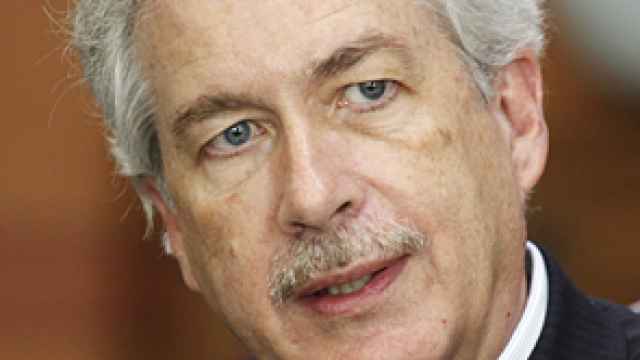WASHINGTON — The thorny task of convincing Russia to hand over fugitive security contractor Edward Snowden has been put in the hands of U.S. Deputy Secretary of State William Burns, a decorated diplomat with deep contacts in Moscow from a stint as envoy there.
The 57-year-old Burns has faced off with President Vladimir Putin before, serving in Moscow during a particularly rough patch in bilateral ties.
"He's the right guy for this exceedingly difficult mission," said Andrew Kuchins, head of the Russia and Eurasia program at Washington's Center for Strategic and International Studies.
 William Burns
William Burns
Reuters
U.S. Secretary of State John Kerry said Monday that Burns had been working the phones with Moscow since Snowden's arrival in Moscow on Sunday from Hong Kong.
U.S. officials said it was not clear if Burns would actually fly to Moscow for talks on the Snowden issue. State Department spokesman Patrick Ventrell declined to say whether Burns had made any further calls on Tuesday.
Putin confirmed on Tuesday that Snowden, a former U.S. spy agency contractor sought by the United States, was in the transit area of a Moscow airport but ruled out handing him over to Washington, dismissing U.S. criticisms as "ravings and rubbish."
Burns served as the U.S. ambassador in Moscow from 2005-8, a tenure framed by the "Color Revolutions" in the former Soviet republics of Georgia, Ukraine and Kyrgyzstan and the Russian invasion of Georgia. All of these strained U.S.-Russia ties.
"It was a period when the relationship was deteriorating very significantly, but he was personally respected by Russian authorities as a consummate professional diplomat," Kuchins said.
Kuchins, who at that time headed the Carnegie Moscow Center in Russia, credits Burns with leading an effective, behind-the-scenes effort to convince Putin to soften legislation unveiled in 2005 that contained draconian policies on nongovernmental organizations that might have forced Carnegie and other Western think tanks to leave Russia.
"It was done quietly, not in the press, but behind closed doors and it was ultimately successful," said Kuchins, who says public naming and shaming does not work as well with Russia as quiet but firm diplomacy.
Since Burns' time, however, Putin's government has introduced ever harsher restrictions on NGOs and other civil society groups.
Tall and dapper with silver hair and a mustache, Burns speaks Russian, Arabic and French, according to his official biography. He has also served as the U.S. ambassador in Jordan during a 31-year career mostly focusing on the Middle East.
In a web cast interview on June 18 with Nicholas Kralev — author of a book about the State Department titled "America's Other Army" — Burns said he relished "the variety of issues that I get drawn into serving as the principal deputy and alter ego to the secretary of state."
"You get spread across the issues. Every day is a constant lesson in humility about things you need to understand and you need to know more about," Burns said.
Related articles:
A Message from The Moscow Times:
Dear readers,
We are facing unprecedented challenges. Russia's Prosecutor General's Office has designated The Moscow Times as an "undesirable" organization, criminalizing our work and putting our staff at risk of prosecution. This follows our earlier unjust labeling as a "foreign agent."
These actions are direct attempts to silence independent journalism in Russia. The authorities claim our work "discredits the decisions of the Russian leadership." We see things differently: we strive to provide accurate, unbiased reporting on Russia.
We, the journalists of The Moscow Times, refuse to be silenced. But to continue our work, we need your help.
Your support, no matter how small, makes a world of difference. If you can, please support us monthly starting from just $2. It's quick to set up, and every contribution makes a significant impact.
By supporting The Moscow Times, you're defending open, independent journalism in the face of repression. Thank you for standing with us.
Remind me later.

